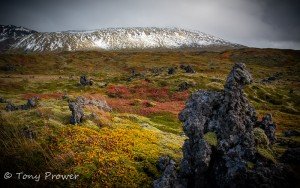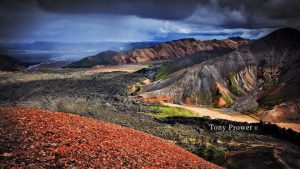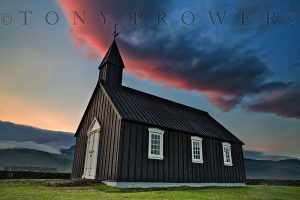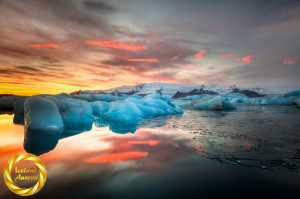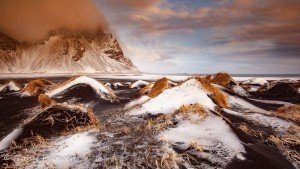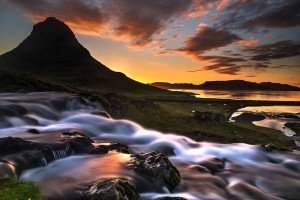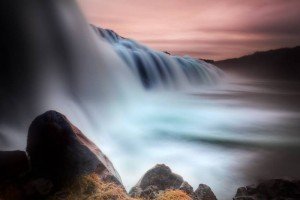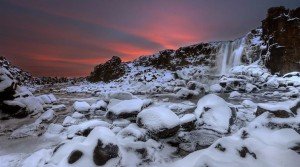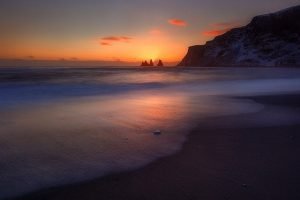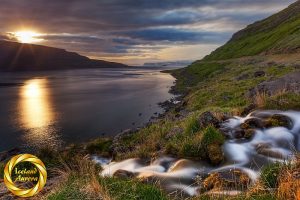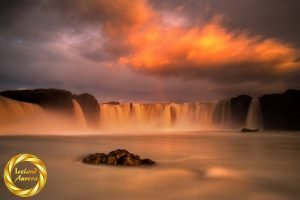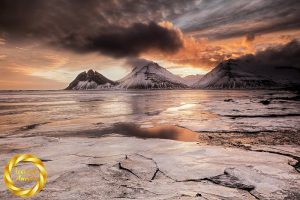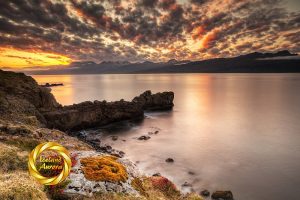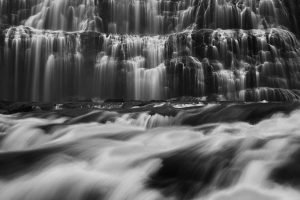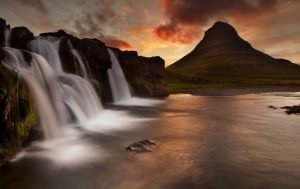Iceland Summer Trip
This was a summer photo tour around Iceland, but this post will look at the first couple of days, including Jökulsarlon glacier lagoon and the East Fjords. Mostly to show two very different weather conditions that can be expected in the summer. This was not a professional photo tour with paying customers. This was a photo holiday with my partner, who is also a keen photographer. This was a very memorable trip because this is where I discovered the Magic Cloth technique.
Travel Sickness
We had driven along the South Coast in overcast conditions and landed safely at the campsite at Flossalaug. This was perfect because, after a long day of driving, the last thing you need is a campsite full of summer tourists drinking beer and playing midnight Frisbee. This secret campsite was empty as we set up the tent. The sunset was a sky of beautiful, high lenticular clouds.
Unfortunately, I ended up with a horrible fever this night and slept very little. My partner drove the next day, and she managed to find a cheap hotel room for me to rest properly in. This worked, and after a meal, we headed back to Jökulsarlon glacier lagoon and Diamond Beach for the evening.
Among the must-see locations are Vatnjokull Glacier’s Diamond Beach and Jökulsárlón Glacial Lagoon. These natural treasures, from the tranquil lagoon to the mesmerizing ice formations on the shore, provide a window into the vast force of Mother Nature.
Thinking of a self drive?
Diamond Beach
The Vatnajökull Glacier melts, creating Diamond Beach. Icebergs are released into the Jökulsárlón lagoon as the glacier melts, where they subsequently float into the North Atlantic Ocean. These icebergs are subsequently pushed back onto the shore by the ocean’s waves, leaving a stunningly stunning black sand beach coated in ice shards.
I was keen to try out my new 6-stop B&W ND filter, so we headed to Diamond Beach to test my long exposures to the Atlantic waves. The sky was wonderful, with lots of high, feathery clouds. This was an idyllic summer evening in Iceland.
The salt content of the waves causes the “diamond” effect. The salt content of the sea aids in eroding the ice, giving it its dazzling aspect, as the waves bring the icebergs onshore and back off again. The beach stands out sharply against the white ice because of the black sand that the glacier gradually deposited.
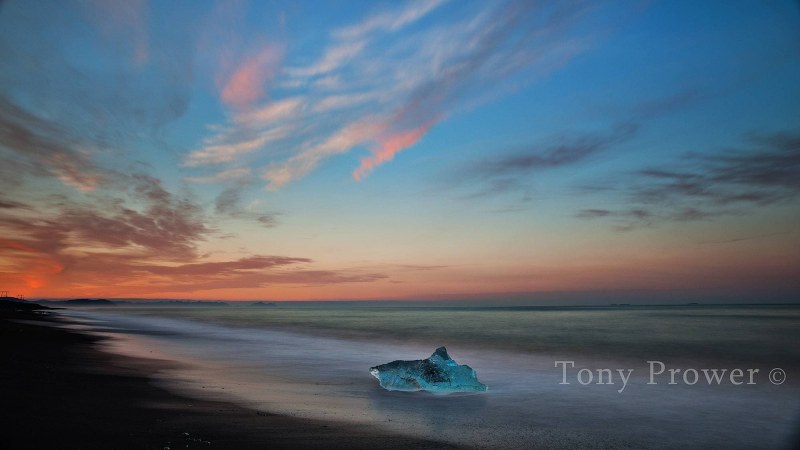
Jökulsarlon Glacier Lagoon
With some areas reaching depths of more than 200 metres, the Jökulsarlon glacial lagoon is currently Iceland’s deepest lake. Thousands of tons of ice from the Breiamerkurjökull outlet glacier of Vatnjökull Glacier have broken off and are now accumulated in the enormous lake. Ice actually travels from the glacier to the open ocean only in that particular area of Iceland.
We crossed over to the west bank of the lagoon as it approached midnight because this gave us a better choice of angles to work with the sky. The nature photo below was taken with my new 6-stop B&W ND filter, and it was around midnight, so my exposure was creeping up to 30 seconds.
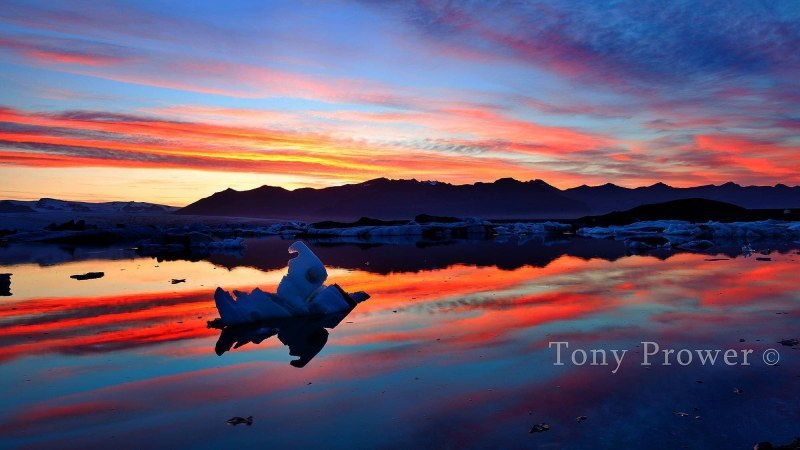
Dodge & Burn
After the previous shot, I figured that if I covered the sky for half of the 30-second exposure, I would have a better balance of sky and land exposures. I simply covered the sky after 15 seconds with my lens cloth, and the stunning photo below was the result. This long exposure trick became known as the Magic Cloth Technique, as described here.
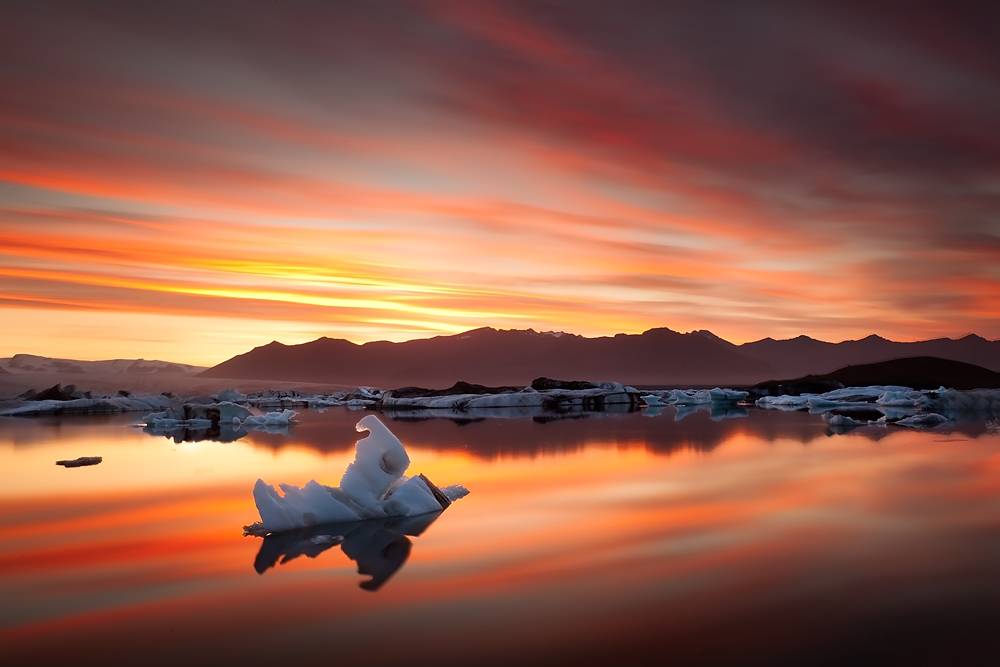
After the sunset, we headed east towards the East Fjords in search of a nice campsite.
East Coast
The Eastfjords of Iceland really begin with Brunahorn mMountain which is a part of the Vestrahorn mountain range. Brunahorn has a famous “bat-shaped” peak, which was unfortunately covered by low clouds when we got there.
The weather changed dramatically, and soon we were under a low cloud with no hope of any colour. I set up for some long exposure shots in an attempt to show the clouds moving against the mountains.
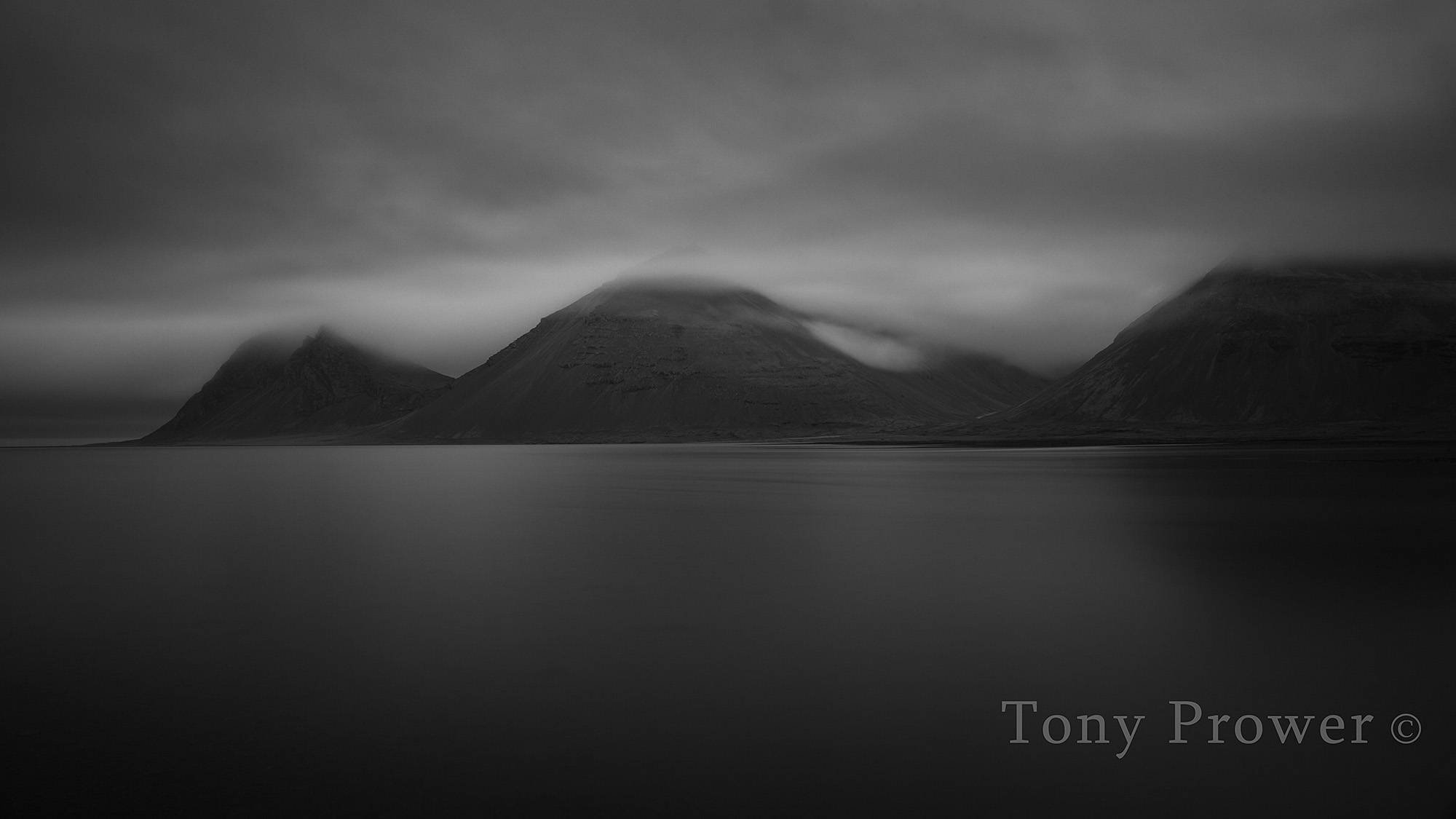
Bulandstindur Mountain
We found a nice campsite in Berufjörður with a nice view of Bulandstindur (reputably the most beautiful mountain in the East Fjords). We set up camp for a couple of nights and hoped for some peaceful camping with no driving. We hoped for an end to the sea mist that was driving against Iceland’s East Coast from the Norwegian Sea.
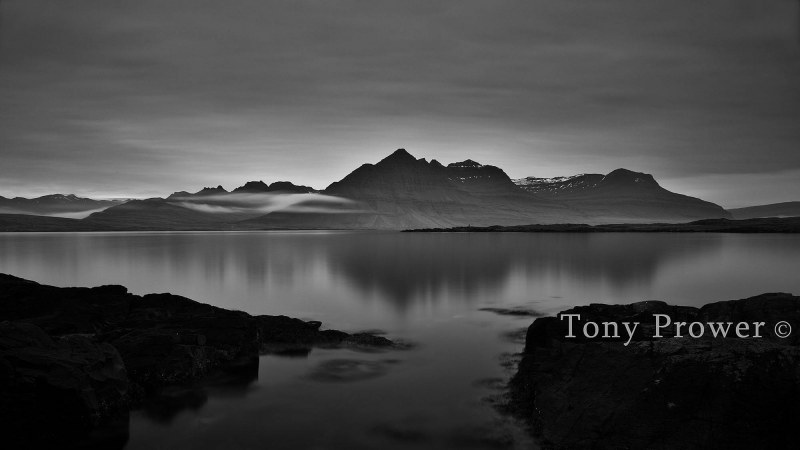
At last, I got a little bit of colour around midnight, which was about the time of the sunset. I was waiting on the shores of the fjord, studying the reflection, and hoping for the clouds to do something. Fantastically, they dropped to reveal the peaks of Bulandstindur mountain, and the higher clouds gained a little bit of colour behind the silhouetted mountain peaks.
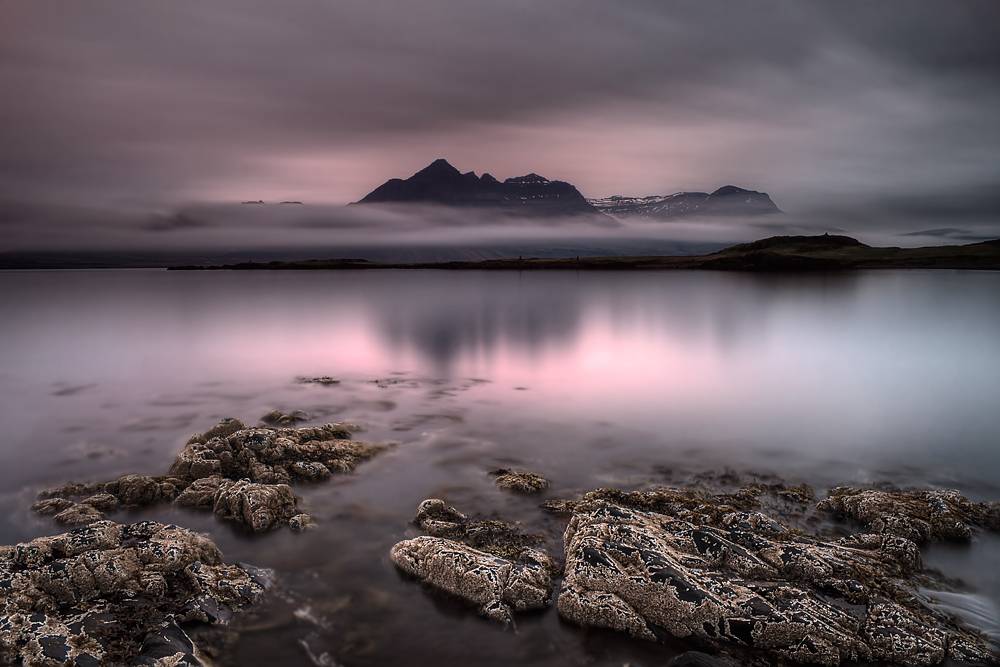
Vattarnes Sea Cliffs
The next day, we packed up the tent and headed north. We found a guesthouse in Fáskrúðsfjörður, near the tunnel that connects to Reyðarfjörður.
In the evening, the sky started to clear, and so I ventured out on my own to explore. I drove through the fishing village at Fáskrúðsfjörður and followed the road around the tip of the fjord. The road went uphill sharply. There are viewpoints up here with sheer drops to the Norwegian Sea below. These viewpoints offered great views of Skrúður. The island of Skrúður is home to large puffin colonies.
A beautiful coastline in Iceland’s Eastfjords is the Vattarnes Fjord Peninsular. The region is where Reyarfjörur and Fáskrsfjörur’s respective landmasses separate. I followed the road downhill to Vattarnes.
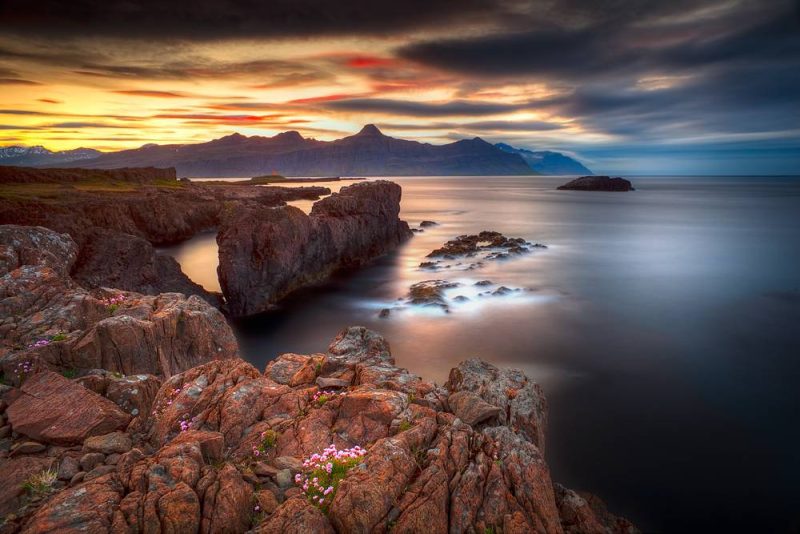
I took full advantage of the cliffs of Vattarnes. This scene got the full Magic Cloth Technique. This captured the magic of the mid-summer sky and the dramatic coastline.
Hotels near Vattarnes
Fine Art Prints
Some of the photos from this trip are for sale as fine art prints in my gallery.

